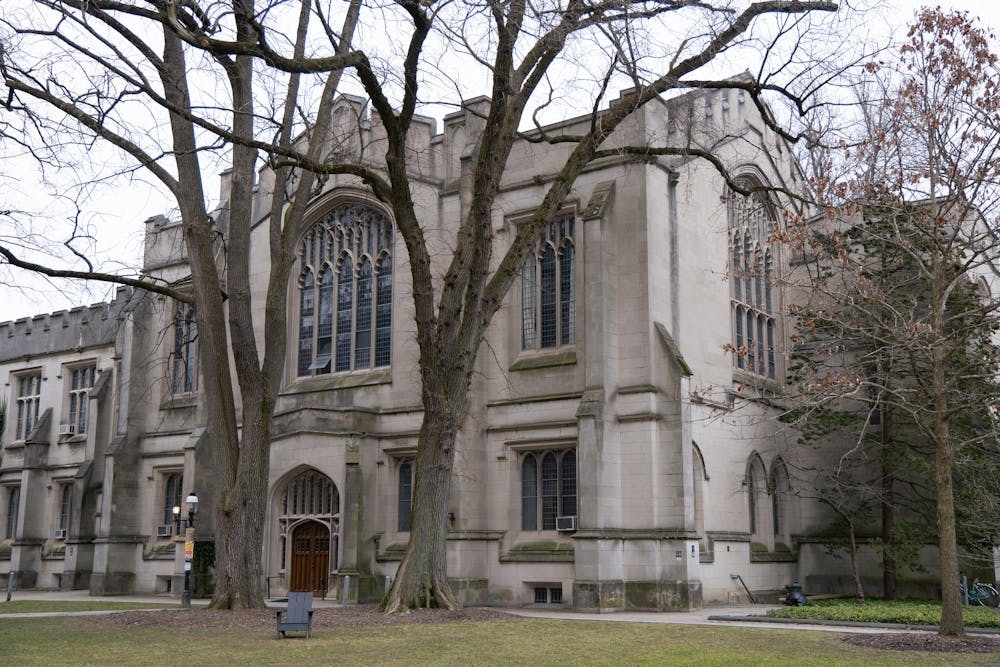Certain kinds of non-tenured faculty can now receive emeritus status when they retire following a vote at last week’s faculty meeting, a change that allows them to maintain access to certain University benefits and funding opportunities.
The change was intended to “honor the contributions of long-serving faculty” and “enhance the recognition of valuable faculty members who reinforce Princeton’s commitment to its teaching community,” according to the proposal made by Dean of the Faculty Gene Jarrett. The move is also intended to “align Princeton’s policies with those of Ivy+ peer institutions,” some of which have expanded recently.
Currently, only tenured professors and associate professors are granted emeritus status when they retire. Senior lecturers, University lecturers, and professors of the practice do not receive tenure and are considered “non-ladder teaching faculty,” according to the proposal. These positions are staffed across a number of departments, including languages, computer science, and economics.
“When I first assumed this role, I was told, quite frankly, that the Senior Lecturer position was a ‘dead-end,’” Senior Lecturer in Korean Language Ho Jung Choi wrote in a statement to The Daily Princetonian. “There were no opportunities for promotion, nor a clear pathway to maintain a professional connection with the University after retirement, despite years of full-time teaching and service.”
When emeritus faculty retire, they maintain certain benefits that non-emeritus retirees do not. These include retaining computing privileges like maintaining their existing University email address; having access to the library, athletic facilities, and dining facilities; being assigned office or laboratory space if available and needed; and being able to take on postdocs and other research staff.
Faculty members who receive emeritus status must voluntarily resign from their current position of employment. Those who are dismissed for cause or leave the University not in good standing are not eligible for emeritus status, according to the proposal. The University also reserves the right to deny or rescind emeritus status if it feels a faculty member’s conduct is “inconsistent” with the “ethical standards currently expected from all Princeton faculty.” This is not customarily the case, according to the Office of the Dean of the Faculty.
The Dean of the Faculty’s proposal comes after several other institutions have approved the transfer of emeritus status for non-ladder teaching faculty. In March 2023, Yale expanded their policies on emeritus status to include several non-ladder instructional and research faculty positions. Stanford’s retirement policies similarly include giving emeritus status to professors ranked in their non-tenure lines.
The proposed amendment will be made to Provision IV.N of the Rules and Procedures of the Faculty, which outlines rules for retirement.

Following this proposal’s passage, the Dean of the Faculty will approve the transfer to emeritus status for senior lecturers, University lecturers, and professors of the practice. Emeritus status for tenured professors and associate professors is currently approved by the University’s Board of Trustees, according to the Office of the Dean of the Faculty.
Senior lecturers, University lecturers, and professors of the practice will be transferred to emeritus status if they fulfill three set criteria. First, they must have completed a minimum of 10 years of consecutive full-time work at the rank of senior lecturer or higher. “University lecturer” and “professor of the practice” are considered higher ranks than “senior lecturer.” Secondly, they must meet retirement eligibility-requirements already set by the University, including being at least 55 years old. Additionally, they must formally retire.
The proposal will also codify the current processes by which emeritus status is transferred to tenured faculty members, stating that “The Board of Trustees approves the transfer to emeritus status of retirement benefits-eligible faculty who formally retire.” Previously, the provision did not specify that faculty members must be “benefits-eligible” or that they must “formally retire.”
The amendment also states that emeritus status faculty members who “retain a professional connection with Princeton” are expected to “conduct their future research and professional activities in accordance with University policy” and can also teach on an “occasional and part-time basis.”

“I’m very pleased that the new policy granting emeritus status to retiring Senior Lecturers, University Lecturers, and Professors of the Practice was approved at the last faculty meeting,” Senior Lecturer in Spanish and Portuguese Anna Alsina Naudi wrote in a statement to the ‘Prince.’ “It’s a meaningful recognition of their contributions and ensures continued connection and engagement with the University community.”
“This is a meaningful and necessary step, one that can strengthen the sense of belonging, continuity, and mutual respect within Princeton’s faculty community,” Choi wrote.
Nikki Han is an assistant News editor and a contributing Features writer. She runs the Faculty, Graduate Students, and Alumni coverage area.
Please send any corrections to corrections[at]dailyprincetonian.com.
Correction: a previous version of the article did not specify that the amendment will be made to the Rules and Procedures of the Faculty, as the University has other Rules and Procedures. Also, wording has been changed to clarify that the benefits are specifically granted to emeritus faculty on retirement and are not granted to non-emeritus faculty who retire.








